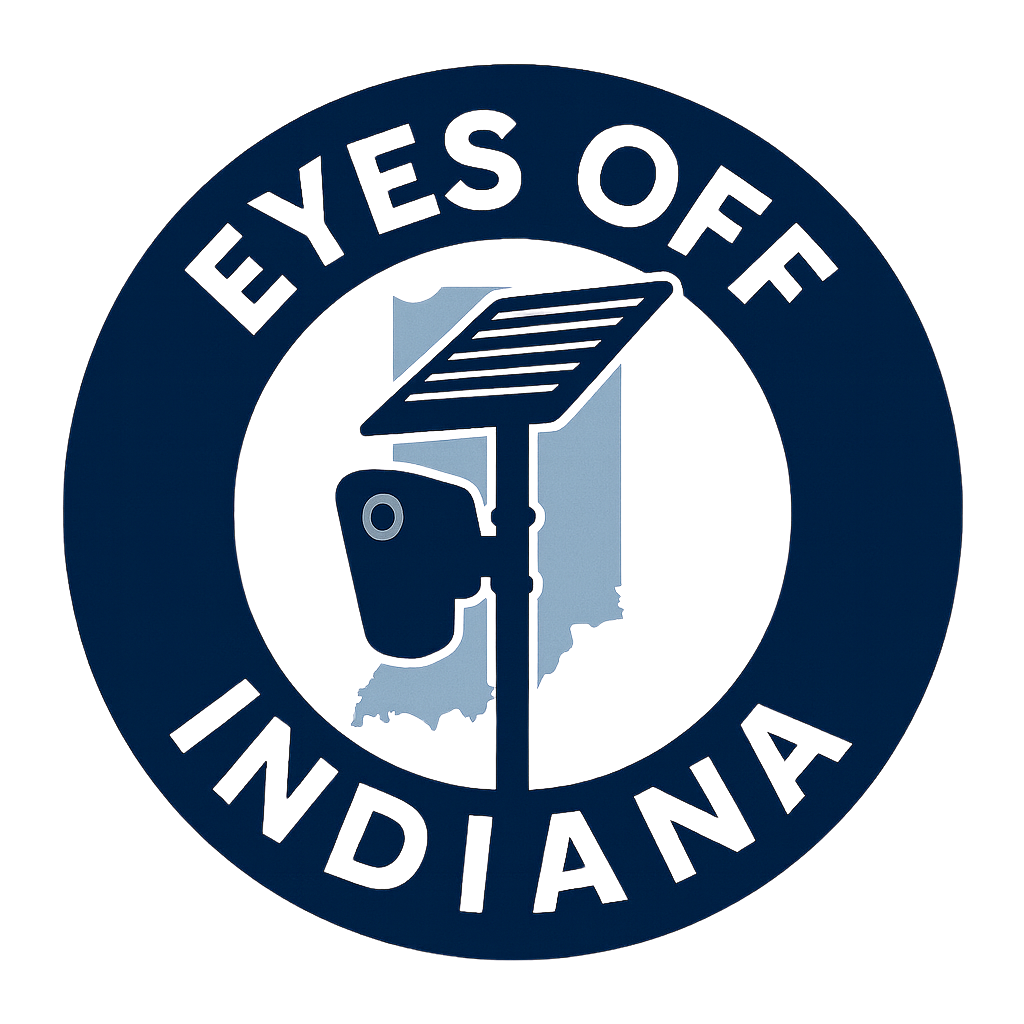A Nationwide ALPR Investigation With Local Implications
A new report from the Electronic Frontier Foundation (EFF) shows that law enforcement agencies across the country used Flock Safety’s automated license plate reader (ALPR) network to search for vehicles associated with protests and activist organizations. The analysis reviewed 12 million ALPR search logs from December 2024 through October 2025, representing more than 3,900 agencies nationwide.
The findings reveal that agencies routinely used ALPR systems to identify people attending demonstrations, including large national protests and smaller, local actions. These searches often included vague reasons such as "protest" or "protest case," even when no specific crime was articulated.
The investigation highlights the central issue for Indiana: ALPR networks are increasingly used to monitor constitutionally protected activities, yet Indiana has no statewide standards limiting how ALPRs can be used, shared, or retained.
What EFF Found
EFF identified more than 50 federal, state, and local agencies that used Flock Safety’s nationwide ALPR system to conduct protest-related searches. Examples include:
- Searches tied to the No Kings protests in June and October 2025
- Searches during 50501 demonstrations and May Day rallies
- Searches by multiple agencies looking for activist vehicles across thousands of networks
- Specific targeting of animal rights activists with dozens of ALPR queries
In many cases, agencies were not searching for a known suspect or vehicle linked to a crime. Instead, they searched for broad descriptors such as "bus," "red vehicle," or "work van" during protest time frames. This reflects how ALPR databases enable officers to conduct wide searches that sweep in people who have done nothing wrong.
Examples of Protest-Linked Searches
EFF highlighted several patterns:
- The Spokane County Sheriff's Office searched 95 networks for generic vehicle types listed under "no kings" in June 2025.
- The Beaumont Police Department in Texas searched 1,774 networks for vehicles linked to "Kings Day Protest."
- Grand Rapids Police in Michigan ran searches on more than 600 networks with the sole reason "Protest."
- Agencies in Tennessee, Arizona, California, South Carolina, Ohio, and Virginia all logged protest-related queries.
Some searches were tied to criminal threats, such as vehicles driving into crowds. But many were not. The key point is that the only reason these searches were possible is because ALPR systems collect data on everyone who drives near a protest, not just on people suspected of wrongdoing.
Activists Targeted Beyond Large Protests
The EFF report also shows how ALPR surveillance extends to smaller activist groups. For example:
- Delaware State Police ran multiple searches for vehicles belonging to Direct Action Everywhere (DxE).
- The California Highway Patrol logged dozens of searches during DxE’s annual organizing event.
- Searches targeted activists involved in investigations of agricultural facilities.
This demonstrates how ALPR systems can be used to monitor civil disobedience, investigative activism, or advocacy campaigns, particularly when those efforts challenge powerful industries.
Border Patrol’s Role in Protest Monitoring
EFF found that U.S. Border Patrol (USBP) used Flock’s national network during its trial access period in early 2025. USBP ran searches labeled "Portland Riots," monitored vehicles of people who confronted immigration operations, and relied on local agencies to access data even after Flock paused federal logins.
This mirrors the Associated Press investigation showing Border Patrol expanding its ALPR use deep into the interior of the country, including in the Midwest.
Why This Matters for Indiana
Indiana has no statewide ALPR laws. Agencies may:
- Retain ALPR data indefinitely
- Share it with hundreds or thousands of outside agencies
- Give access to federal agencies without meaningful limits
- Conduct broad searches with little documentation or oversight
The EFF findings show how, without safeguards, ALPR systems can be repurposed to monitor political speech, public demonstrations, and advocacy groups. This is especially concerning in Indiana, where there are no required retention limits, warrant standards, audit logs, or transparency rules.
The Takeaway for Hoosiers
ALPR technology collects data on everyone, not just suspects. When protests or rallies occur, this data can easily be used to reconstruct who attended, where they traveled, and who traveled with them. Without statewide rules, Indiana residents may be pulled into national surveillance networks without ever knowing their information was accessed.
How Indiana Can Prevent Abuse
Eyes Off Indiana supports reasonable statewide limits that allow ALPR systems to be used for legitimate public safety purposes while preventing misuse. Indiana should adopt laws that:
- Require short retention limits
- Ban commercial sharing or resale of ALPR records
- Require a warrant for historical searches
- Mandate public reporting and independent audits
Take Action
Help ensure that ALPR technology in Indiana is used responsibly and with public oversight.
- Sign the petition: eyesoffindiana.org/petition
- Share this article and the EFF report
Everyone should be able to participate in civic life without ending up in a surveillance database.

